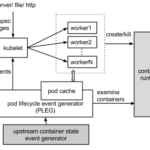はじめに
こんにちは、最近パンを焼いている者です。
これがこう pic.twitter.com/4y7mJYHmwV
— nishipy (@iamnishipy) October 16, 2022
これは「Ansible Advent Calendar 2022」 7日目の記事です。Advent Calendarがあるとブログ書く気になるので、ありがたいイベントです。
Kubernetes Advent Calendarにも参加したので、よければご覧ください〜。
ansible-lint と 私
ansible-lintは、その名の通りAnsibleのlinterです。PlaybookやRoleがコード規約に則って書けているかチェックできます。コード規約は、rules として独自に定義することもできますし、一般的なものはデフォルトルールとしてあらかじめ定義されています。
某社が提供するRed Hat Ansible Automation Platform (AAP)でも、AAP 2.2からansible-lintがTech Previewとして含まれるようになりました。
2022年は私にとってコードを書くタイプのOSSコントリビュートを頑張った1年でした。そのうちansible-lintのバグを修正したことについて共有させてください。なお、記事の中で紹介するバグ修正がansible-lint v6.1.0で取り込まれたため、載せるソースコードはその直前の ansible-lint v6.0.2 時点のものです。ご注意ください。
私がansible-lintで初めて修正したバグで、かつ一番大きかったのがこちらです。デフォルトルールの var-naming のバグです。変数名がコード規約に従っているかチェックするルールですが、block 内で宣言した変数に対してうまく動いませんでした。根拠なく、なんかいけそうな気がしたので、こちらに取り組むことにしました。
(余談) good first issue の活用
コントリビュートしてみたいけど何から始めればいいかわからない場合、good first issue を活用するのもよさそうです。Issueのラベルではなくそういう名前のWebサイトです。
人気のあるプロジェクトや新たなコントリビューターを歓迎しているプロジェクトのIssueから、good first issueラベルがついた比較的取り組みやすいIssueをまとめてくれています。言語ごとにフィルターもできて便利です。
調査の一部始終
ansiblelint._internal.rules.BaseRule.getmatches()
anbsible-lintでルール違反を検出するのが、BaseRule クラスのgetmatches()メソッドです。
|
1 2 3 4 5 6 7 8 9 10 11 12 13 14 15 16 17 18 |
# ~/src/ansiblelint/_internal/rules.py def getmatches(self, file: "Lintable") -> List["MatchError"]: """Return all matches while ignoring exceptions.""" matches = [] if not file.path.is_dir(): for method in [self.matchlines, self.matchtasks, self.matchyaml]: try: matches.extend(method(file)) except Exception as exc: # pylint: disable=broad-except _logger.debug( "Ignored exception from %s.%s: %s", self.__class__.__name__, method, exc, ) else: matches.extend(self.matchdir(file)) return matches |
for method in [self.matchlines, self.matchtasks, self.matchyaml] のところで、すべての評価用のメソッドを順に読んでいき、最後にまとめて結果を返しています。
ansiblelint.rules.match_types
以下のようなメソッドが評価に使われます。match, matchtask, matchplay はそれぞれmatchlines、matchtasks、matchyamlから呼び出される構造のようです。今回取り組んだIssueは、tasks (およびpre_tasks/post_tasks)の中のblock内の変数名をうまく評価できていないという問題なので、matchtasks/matchtaskを見るのが良さそうです。
|
1 2 3 4 5 6 7 8 9 10 |
# ~/src/ansiblelint/rules/__init__.py match_types = { "matchlines": "line", "match": "line", # called by matchlines "matchtasks": "task", "matchtask": "task", # called by matchtasks "matchyaml": "yaml", "matchplay": "play", # called by matchyaml "matchdir": "dir", } |
AnsibleLintRule.matchtasks()
個々のルールは、このAnsibleLintRule classをオーバーライドしており、matchtaskだけを独自に実装しています。そのため、呼び出し元のmatchtasksは共通と思って良さそうです。
|
1 2 3 4 5 6 7 8 9 10 11 12 13 14 15 16 17 18 19 20 21 22 23 24 25 26 27 28 29 30 31 32 33 34 35 36 37 38 39 40 41 42 43 |
# ~/src/ansiblelint/rules/__init__.py class AnsibleLintRule(BaseRule): """AnsibleLintRule should be used as base for writing new rules.""" # ~~ def matchtasks(self, file: Lintable) -> List[MatchError]: matches: List[MatchError] = [] if ( not self.matchtask or file.kind not in ["handlers", "tasks", "playbook"] or str(file.base_kind) != "text/yaml" ): return matches tasks_iterator = ansiblelint.yaml_utils.iter_tasks_in_file(file, self.id) for raw_task, task, skipped, error in tasks_iterator: if error is not None: # normalize_task converts AnsibleParserError to MatchError return [error] if skipped or "action" not in task: continue if self.needs_raw_task: task["__raw_task__"] = raw_task result = self.matchtask(task, file=file) if not result: continue message = None if isinstance(result, str): message = result task_msg = "Task/Handler: " + ansiblelint.utils.task_to_str(task) match = self.create_matcherror( message=message, linenumber=task[ansiblelint.utils.LINE_NUMBER_KEY], details=task_msg, filename=file, ) match.task = task matches.append(match) return matches |
ansiblelint.rules.VariableNamingRule
var-namingルールのバグということなので、src/ansiblelint/rules/var_naming.py の matchtask() を見てみます。
|
1 2 3 4 5 6 7 8 9 10 11 12 13 14 15 16 17 18 19 20 21 22 23 24 25 26 27 28 29 30 31 32 33 34 35 36 |
# ~/src/ansiblelint/rules/var_naming.py class VariableNamingRule(AnsibleLintRule): """All variables should be named using only lowercase and underscores.""" id = "var-naming" severity = "MEDIUM" tags = ["idiom", "experimental"] version_added = "v5.0.10" re_pattern = re.compile(options.var_naming_pattern or "^[a-z_][a-z0-9_]*$") # ~~ def matchtask( self, task: Dict[str, Any], file: Optional[Lintable] = None ) -> Union[bool, str]: """Return matches for task based variables.""" # If the task uses the 'vars' section to set variables our_vars = task.get("vars", {}) for key in our_vars.keys(): if self.is_invalid_variable_name(key): return "Task defines variables within 'vars' section that violates variable naming standards" # If the task uses the 'set_fact' module ansible_module = task["action"]["__ansible_module__"] ansible_action = task["action"] if ansible_module == "set_fact": for key in ansible_action.keys(): if self.is_invalid_variable_name(key): return "Task uses 'set_fact' to define variables that violates variable naming standards" # If the task registers a variable registered_var = task.get("register", None) if registered_var and self.is_invalid_variable_name(registered_var): return "Task registers a variable that violates variable naming standards" return False |
task というデータをインプットとして使い、our_vars = task.get("vars", {}) のところで変数を抜き出してきています。
いろいろデバッグしていると、そもそもmatchtaskのインプットとなるデータから、blockの情報が欠落しているというのがわかりました。従って、インプットのデータを作るところ再度確認するため、呼び出し元のAnsibleLintRule.matchtasks()メソッドに話を戻します。
再び、AnsibleLintRule.matchtasks()
|
1 2 3 4 5 6 7 8 9 10 11 12 13 14 15 16 17 18 19 20 21 22 23 24 25 26 |
# ~/src/ansiblelint/rules/__init__.py class AnsibleLintRule(BaseRule): """AnsibleLintRule should be used as base for writing new rules.""" # ~~ def matchtasks(self, file: Lintable) -> List[MatchError]: matches: List[MatchError] = [] if ( not self.matchtask or file.kind not in ["handlers", "tasks", "playbook"] or str(file.base_kind) != "text/yaml" ): return matches tasks_iterator = ansiblelint.yaml_utils.iter_tasks_in_file(file, self.id) for raw_task, task, skipped, error in tasks_iterator: if error is not None: # normalize_task converts AnsibleParserError to MatchError return [error] if skipped or "action" not in task: continue if self.needs_raw_task: task["__raw_task__"] = raw_task result = self.matchtask(task, file=file) |
さて、もう一度matchtasksを見てみると、result = self.matchtask(task, file=file) のところで、matchtaskを呼んでいます。このとき引数となっているtask の作り方が怪しそうです。
matchtaskはfor文の中で呼ばれていますが、そのイテレータは tasks_iterator = ansiblelint.yaml_utils.iter_tasks_in_file(file, self.id) で生成されているのがわかります。怪しい。
ansiblelint.yaml_utils.iter_tasks_in_file()
|
1 2 3 4 5 6 7 8 9 10 11 12 13 14 15 16 17 18 19 20 21 22 23 24 25 26 27 28 29 30 31 32 33 34 35 36 37 38 39 40 41 42 43 44 45 46 47 48 49 50 51 52 53 54 55 |
# ~/src/ansiblelint/yaml_utils.py def iter_tasks_in_file( lintable: Lintable, rule_id: str ) -> Iterator[Tuple[Dict[str, Any], Dict[str, Any], bool, Optional[MatchError]]]: """Iterate over tasks in file. This yields a 4-tuple of raw_task, normalized_task, skipped, and error. raw_task: When looping through the tasks in the file, each "raw_task" is minimally processed to include these special keys: __line__, __file__, skipped_rules. normalized_task: When each raw_task is "normalized", action shorthand (strings) get parsed by ansible into python objects and the action key gets normalized. If the task should be skipped (skipped is True) or normalizing it fails (error is not None) then this is just the raw_task instead of a normalized copy. skipped: Whether or not the task should be skipped according to tags or skipped_rules. error: This is normally None. It will be a MatchError when the raw_task cannot be normalized due to an AnsibleParserError. :param lintable: The playbook or tasks/handlers yaml file to get tasks from :param rule_id: The current rule id to allow calculating skipped. :return: raw_task, normalized_task, skipped, error """ data = parse_yaml_linenumbers(lintable) if not data: return data = ansiblelint.skip_utils.append_skipped_rules(data, lintable) raw_tasks = get_action_tasks(data, lintable) for raw_task in raw_tasks: err: Optional[MatchError] = None # An empty `tags` block causes `None` to be returned if # the `or []` is not present - `task.get('tags', [])` # does not suffice. skipped_in_task_tag = "skip_ansible_lint" in (raw_task.get("tags") or []) skipped_in_yaml_comment = rule_id in raw_task.get("skipped_rules", ()) skipped = skipped_in_task_tag or skipped_in_yaml_comment if skipped: yield raw_task, raw_task, skipped, err continue try: normalized_task = normalize_task(raw_task, str(lintable.path)) except MatchError as err: # normalize_task converts AnsibleParserError to MatchError yield raw_task, raw_task, skipped, err return yield raw_task, normalized_task, skipped, err |
iter_tasks_in_file() は、yaml_utilの中にある関数ですが、YAMLファイル内のtaskをイテレートします。具体的にはraw_task, normalized_task, skipped, error のタプルを生成するようです。
サンプルのPlaybookを作って地道にデバッグしてみると、raw_tasks = get_action_tasks(data, lintable) でdataをtaskの形に変換する際に、以下のようにblockの情報が捨てられているのがわかりました。
|
1 2 3 4 5 6 7 8 9 10 11 |
--- - hosts: 'localhost' gather_facts: true tasks: - name: 'test in a block' block: - name: set fact ansible.builtin.set_fact: foo: "{{ BAD }}" vars: BAD: false |
|
1 2 3 |
DATA: [{'hosts': 'localhost', 'gather_facts': True, 'tasks': [{'name': 'test in a block', 'block': [{'name': 'set fact', 'ansible.builtin.set_fact': {'foo': '{{ BAD }}', '__line__': 9, '__file__': PosixPath('../test/ansible-lint-test/test.yaml')}, '__line__': 7, '__file__': PosixPath('../test/ansible-lint-test/test.yaml'), 'skipped_rules': []}], 'vars': {'BAD': False, '__line__': 11, '__file__': PosixPath('../test/ansible-lint-test/test.yaml')}, '__line__': 5, '__file__': PosixPath('../test/ansible-lint-test/test.yaml'), 'skipped_rules': [], '__ansible_action_type__': 'task'}], '__line__': 2, '__file__': PosixPath('../test/ansible-lint-test/test.yaml')}] RAWTASKS: [{'name': 'set fact', 'ansible.builtin.set_fact': {'foo': '{{ BAD }}', '__line__': 9, '__file__': PosixPath('../test/ansible-lint-test/test.yaml')}, '__line__': 7, '__file__': PosixPath('../test/ansible-lint-test/test.yaml'), 'skipped_rules': [], '__ansible_action_type__': 'meta'}] |
ansiblelint.utils.get_action_tasks()
|
1 2 3 4 5 6 7 8 9 10 11 12 13 14 15 16 17 18 19 20 21 22 23 24 25 26 27 28 29 30 31 |
# ~/src/ansiblelint/utils.py def get_action_tasks(data: AnsibleBaseYAMLObject, file: Lintable) -> List[Any]: """Get a flattened list of action tasks from the file.""" tasks = [] if file.kind in ["tasks", "handlers"]: tasks = add_action_type(data, file.kind) else: tasks.extend(extract_from_list(data, PLAYBOOK_TASK_KEYWORDS)) # Add sub-elements of block/rescue/always to tasks list tasks.extend(extract_from_list(tasks, NESTED_TASK_KEYS, recursive=True)) # Remove block/rescue/always elements from tasks list tasks[:] = [task for task in tasks if all(k not in task for k in NESTED_TASK_KEYS)] # Include the FQCN task names as this happens before normalize return [ task for task in tasks if set( [ "include", "include_tasks", "import_playbook", "import_tasks", "ansible.builtin.include", "ansible.builtin.include_tasks", "ansible.builtin.import_playbook", "ansible.builtin.import_tasks", ] ).isdisjoint(task.keys()) ] |
ちゃんとコメントで # Remove block/rescue/always elements from tasks list と書いてましたw。経緯はわからないですが、直前の# Add sub-elements of block/rescue/always to tasks listでblock/rescue/always内のネストされたタスクを取り出してフラットにしているので、不要なblock/rescue/alwaysの要素を消しているんでしょうか。このときにblock/rescue/alwaysレベルで定義した変数は消えてしまっているので、var-namingルールでうまく扱えなかったようです。
プルリク送ってみた
前章のような調査以外にもいろいろ試しつつ、なんとか修正してPull Requestを送りました。最終的な変更内容はこちらです。別のルールのバグもついでに修正したり、テストコード追加したり、いろいろできました。普段コード書くことそんなに多くないのでとても楽しかったです(小並感)。最初は見当違いな実装をしていた上テストを書いておらず、今考えれば散々な内容でしたが、レビュアーの方が親切で助かりました。
(余談) テスト駆動開発
今回の修正を行なったおかげで、他のルールの実装をリファクタリングすることもできました。リファクタリング前に不足していたテストを書いたり、リファクタリング後に漏れていたテストケースを追加したりしました。
リファクタリングのPull Requestもなんとかマージしてもらい、テストコードって大切だなあと感じたので、後日こちらの書籍を読みました。そして、これ理解してなくてごめんなさいという気持ちになりました。
おわりに
何度も心が折れそうになりましたが、無事マージしてもらえてよかったです。普段使っているツールに自分で書いたコードが含まれているってなんかロマンありますよね。来年も何かしらコミュニティに貢献できるよう頑張ります。




コメント